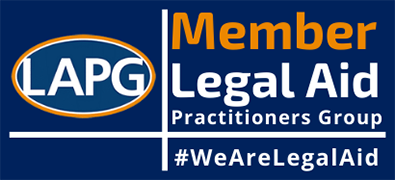
Breaking up is always hard to do, but when you’re not married and there is no official way to deal with your separation, it can be difficult to know how to proceed.
There is no paperwork to record the fact of your separation but the same issues often arise upon the breakdown of a cohabitation as they do on a divorce. Issues of property and children still need to be resolved by separating cohabitees explains Deborah Cahill.
The rules in relation to children either in divorce or post cohabitation are the same. The interests of the children are paramount and parents share the same legal rights as each other. However, when it comes to finances and particularly property legal rights are strikingly different. In divorce, there is a general presumption that the parties share in the assets, whether in one party’s name or in joint names. Any division of the assets will be dealt with on the basis of what is fair and reasonable, taking into account all the circumstances of the case. None of this applies in the case of separating cohabitees. The law says very little about the rights of cohabitees and parties must rely on the laws relating to property to determine their interests in jointly held assets.
Buying property together
Often when parties buy a house together, they decide that the property will be held as “joint tenants” which means both parties own an undivided share in the property. In the event of one party dying the whole of the property passes immediately to the surviving party. There is no record of who made what contribution to the purchase of the property and often there is no agreement or contract in place recording the parties’ thoughts on how the property should be divided if they separated. Where the parties do hold the property as joint tenants, there is a legal presumption that they are equally entitled to the proceeds of sale.
Hudson v Hathway 2022
The basis upon which a property is held is usually declared when the property is purchased and recorded on the deeds or Land Registry title. That basis can be changed by subsequent agreement between the parties, that their shares should be altered. That agreement can either be in writing or verbal. The question is then whether any such agreement is binding on both parties. In a recent case Hudson v, Hathway 2022 EWHC 631 (QB) the parties had separated several years previously and one party had remained in the house with the agreement of the other, mainly due to problems regarding the possible sale of the house. There had been an exchange of correspondence in which both parties agreed that the occupant would keep the house and any sale proceeds, on the understanding that they would not make a claim on the other party’s other assets. Neither took legal advice on this agreement or their respective rights against each other. The non-resident owner later sought an order for the sale of the house. The occupying owner sought to rely on the agreement that they had relied upon that agreement to their detriment.
The court found that the occupier had not acted to their detriment as they had no claim against the other assets of the non-resident owner. The court then had to decide whether the parties should be bound by the agreement even though the parties were mistaken as to the potential claims each may have against the other and the resident party was receiving the whole of the property, despite not having made any payment or suffered any detriment as a result of the agreement. The court decided that the letters recording the agreement reached between the parties was enough to change the way in which the property was shared as it was evidence of the parties’ common intention. The occupying party kept the whole of the house.
For any separating cohabitees recent case strikes a warning note
Remember just because you have lived together for some time, this does not give either of you a right to make a financial claim against the assets of the other party owned in their sole name.
If you are going to try and reach an agreement with the other party about any jointly owned assets, TAKE LEGAL ADVICE before hand. Know your rights!
Lastly do not commit to anything in writing unless you are willing to be found to be legally bound by that agreement.
The Family Law Company provides expert legal advice for separating couples by experienced lawyers who specialise in cohabitation matters.
Need some advice? Get in touch today
"*" indicates required fields
The information submitted here is used and stored for the purpose of replying to the enquiry. For more information on how we process data please visit our Privacy Policy.










